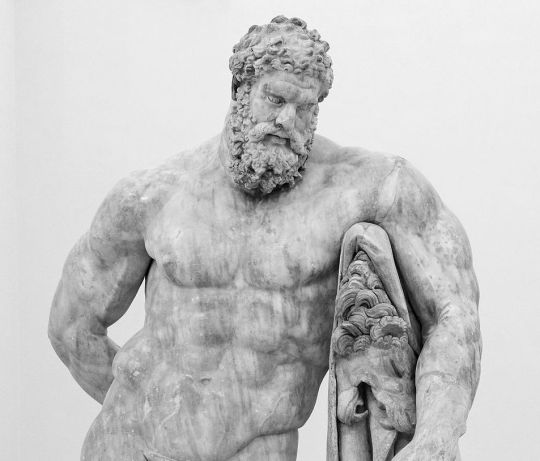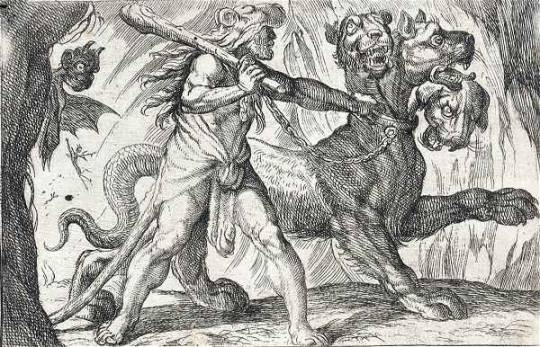#the Son of God
Photo

Wies, Landkreis Weilheim-Schongau, Bavaria
And he was afraid and said, “How awesome is this place! This is none other than the house of God, and this is the gate of heaven” (Genesis 28:17). -The Bible
#the bible#fresco#church#church fresco#angel#angels#rainbow#saints#saint#Jesus Christ#The Son of God#Jesus#Christ#art#fine arts#european art#western civilization#europe#european#europa#putti#putto#cherub#cherubs#classical art#fine art#beautiful art#bavaria#gates of heaven#christianity
373 notes
·
View notes
Text
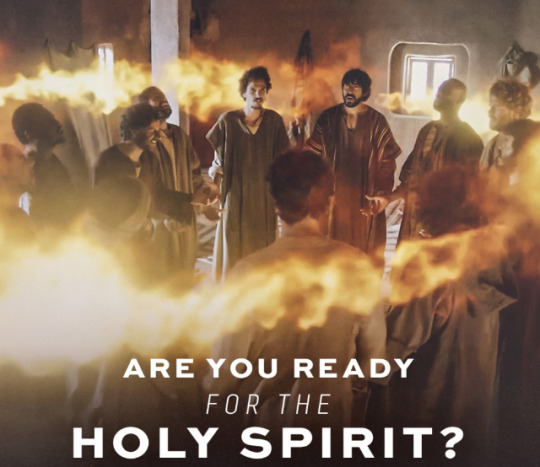
NICODEMUS QUESTIONS JESUS
John 3:7 Marvel not that I said unto thee, Ye must be born again.
John 3:8 The wind bloweth where it listeth, and thou hearest the sound thereof, but canst not tell whence it cometh, and whither it goeth: so is every one that is born of the Spirit.
#Are you ready?#To be Born Again#Baptized by The Holy Spirit#The Power of The Holy Spirit#A More Perfect Tabernacle#Jesus Christ#The Son of God#Glory to God#The Father
52 notes
·
View notes
Text

i love jesus, i think he would appreciate memes being made about him. it is good to have a sense of humor about things and i think he would like how jokes like this keep his story relevant. when i read the part where he is in the garden of gethsemane it feels so heartwrenching but his ability to sweat is also an incredible reflection of his humanity
16 notes
·
View notes
Text

Title: "Navigating the Challenges of the Last Days:
Insights from Biblical Wisdom"
Introduction:
Embark on a transformative journey through biblical wisdom as we navigate the challenges and complexities of the last days. Explore with us as we glean insights from scripture to understand the characteristics of people in the end times and discover how we can stand firm in faith amidst the shifting tides of society.
Scripture Passage: 2 Timothy 3:1-5 (NIV)
Cross References: Matthew 24:10-12, Luke 21:34-36, Jude 1:17-23
Commentary:
In 2 Timothy 3, Paul provides a sobering depiction of the attitudes and behaviors prevalent in the last days. He warns of people being lovers of themselves, lovers of money, boastful, proud, abusive, disobedient to their parents, ungrateful, unholy, without love, unforgiving, slanderous, without self-control, brutal, not lovers of the good, treacherous, rash, conceited, lovers of pleasure rather than lovers of God. This description serves as a cautionary reminder for believers to remain vigilant and steadfast in their faith.
In Matthew 24 and Luke 21, Jesus forewarns of the dangers of being weighed down by the anxieties and distractions of life, urging believers to be watchful and prayerful in preparation for his return.
Jude, in his letter, exhorts believers to contend for the faith earnestly, recognizing the presence of scoffers and mockers in the last days who will follow their own ungodly desires. He encourages believers to build themselves up in their most holy faith, praying in the Holy Spirit, and keeping themselves in God's love.
Application Questions:
How do the characteristics of people in the last days described in scripture resonate with the realities of today's society?
In what ways can we guard against being influenced by the attitudes and behaviors of the world while remaining engaged in it?
How does prayer and spiritual discipline equip us to withstand the challenges of the last days?
What practical steps can we take to share the hope of Christ and the truth of the gospel amidst a culture that opposes it?
Prayer:
Heavenly Father, in the midst of the challenges and trials of the last days, grant us wisdom and discernment to navigate the complexities of this world. Strengthen us to stand firm in our faith, rooted and grounded in your truth, even as the world around us grows increasingly hostile to your ways. May we be beacons of light and hope in a dark and uncertain world, pointing others to the saving grace found in Christ. Amen.
#end times#christianity#christ#bible#jesus christ#EndTimes#BiblicalWisdom#ChristianLiving#Faith#Discipleship#Culture#Society#Prayer#Hope#christian faith#faith in jesus#last days#the son of god#christian blog#biblestudy#bible scripture#christian#jesus#scripture#bible reading#christian tumblr
6 notes
·
View notes
Text

The Lamb That Conquered The World.
I finally finished this digital painting. boy did it take a long time to finish (took many months). probably the most complex digital painting I have done so far, hope it turns out well.
(Fun fact: everything you see in the foreground are symbolic of biblical stories involving Jesus, have a guess which item symbolises which story)
#art#digital art#2d art#digitalart#jesus#jesus christ#jesussaves#christianity#christian faith#christian art#christian artist#christian artists#the lamb#god#the resurrection#the holy spirit#the father#the son of god
21 notes
·
View notes
Text
2024 Youth Theme
youtube
Behold, I am a disciple of Jesus Christ, the Son of God. I have been called of him to declare his word among his people, that they might have everlasting life.
3 Nephi 5:13
#Youtube#the church of jesus christ of latter day saints#the book of mormon#the son of god#2024 theme#music video#a disciple of Christ#jesus christ#called of him#declare his word#that they might have everlasting life#everlasting life#godisgood#christian#faith#faith in jesus#moses one thirty nine#3 nephi#missionary work#3 nephi 5:13
6 notes
·
View notes
Text
You Are Chosen!

You did not meet Jesus by accident. You were chosen.
Jesus declares, "No man can come to me unless the Father gives them to me." That includes you! You did not meet Him by chance.
The Father chose you. He invites you to join His family, to know Him personally, and to make Him your own as you become His.
If you've already accepted Him, great! Take a moment to thank Him for what he is doing in your life.
If you have not accepted Him as yet, please reconsider. The King of kings and Lord of all the universe is sending you a personal invitation to be with Him. What are you waiting for?
4 notes
·
View notes
Text
This year I'm dressing as a Roman soldier and my friend is dressing as Christ.
Speaking of which has anyone seen a medium height guy with long, curly hazelnut brown hair and deep brown eyes with a small beard? I have unfinished business.
11 notes
·
View notes
Link
God did not send his Son into the world to condemn the world, but to save the world through... [ Read devo thought and prayer for this Bible verse ]
#God#Jesus#christianity#faith#Jesus Christ#the son of God#God understands#God is here#God is with us#God saves#Jesus saves#surrender to God#give your life to God#dedicated to God#thankful to God#thank you God#bible verse#heartlight
2 notes
·
View notes
Photo
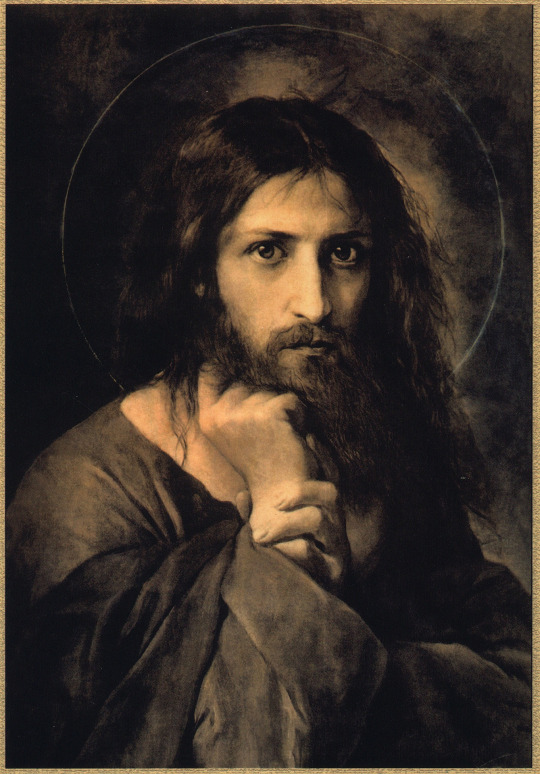
Georg Karl Franz Cornicelius (German, 1825-1898)
Christ Tempted by Satan, 1888
#Georg Cornicelius#german#germany#christian art#christianity#christ tempted by satan#art#fine art#fine arts#orthodox#russian orthodox#greek orthodox#catholic#catholicism#christian#beautiful art#male#Jesus#Jesus Christ#The Son of God#Son of God#classical art#european#western civilization#european art#russia
839 notes
·
View notes
Text

THE CROWD'S RESPONSE
Acts 2:38 Then Peter said unto them, Repent, and be baptized every one of you in the name of Jesus Christ for the remissions of sins, and ye shall receive the gift of the Holy Ghost.
#Repent#Be Baptized#No Water just Repentance#In Jesus Name for your sins#Be Baptized by The Holy Spirit#Receive The Holy Spirt#Be Born Again#A More Perfect Tabernacle#Jesus Christ#The Son of God#Praise God#The Father
35 notes
·
View notes
Text
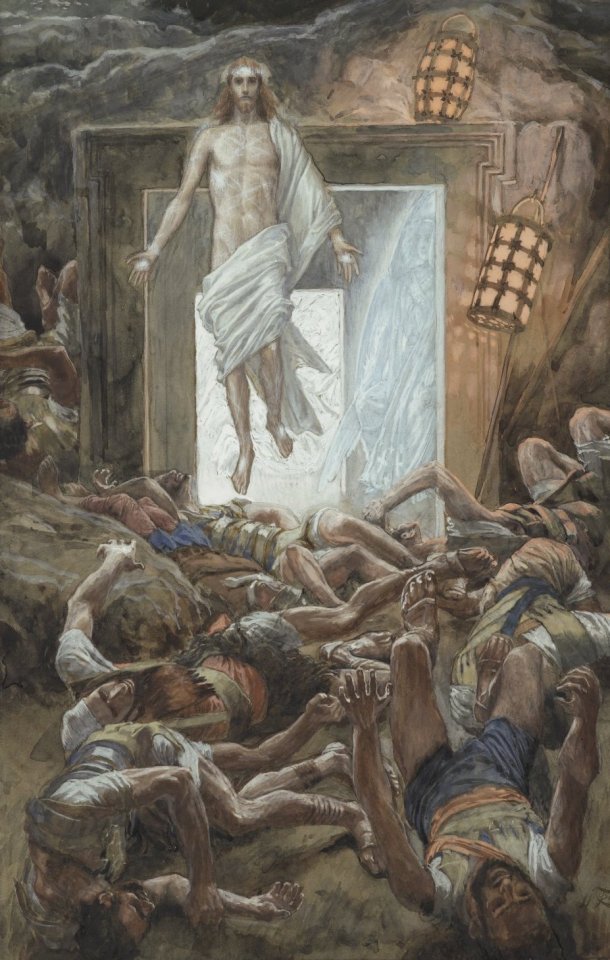
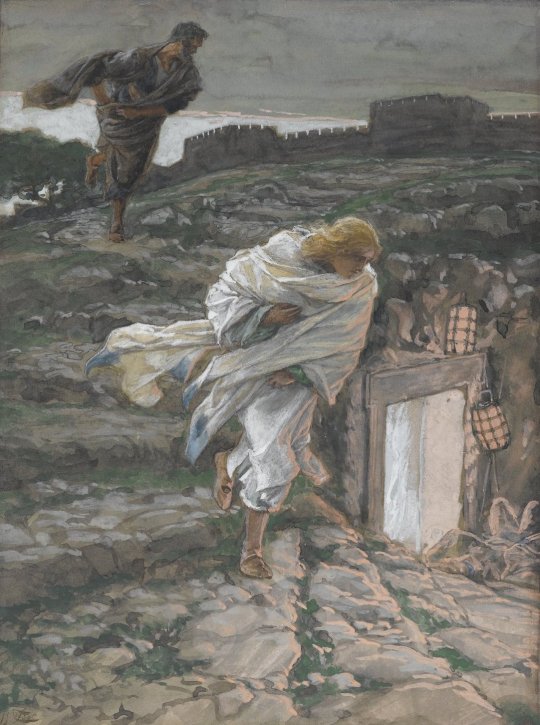

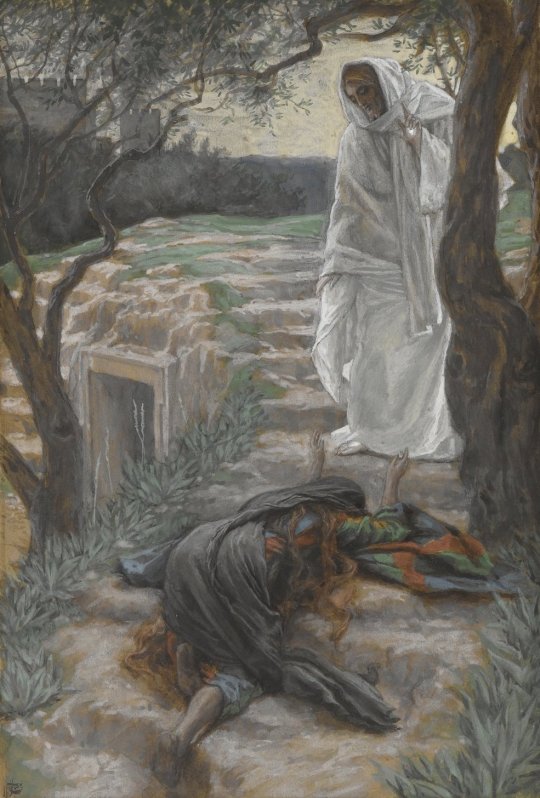

The Resurrection (La Résurrection), Saint Peter and Saint John Run to the Sepulchre (Saint Pierre et Saint Jean courent au sépulcre), Touch Me Not (Noli me tangere), He Vanished from Their Sight (Il disparut à leurs yeux), The Ascension (L'Ascension), James Tissot c. 1886-1894
Χριστός Ανέστη!!
#jesus#jesus christ#jesuscore#lord god#THE SON OF GOD#christian art#easter#the resurrection#the ascension#james tissot
17 notes
·
View notes
Text

today is agressive day
#one piece#doodle#god usopp#usopp#roronoa zoro#monkey d luffy#cat burglar nami#black leg sanji#cyborg franky#nico robin#soul king brook#first son of the sea jinbe#tony tony chopper#gif#one piece gif
10K notes
·
View notes
Text
John 19:5–7
5 ἐξῆλθεν οὖν ὁ Ἰησοῦς ἔξω, φορῶν τὸν ἀκάνθινον στέφανον καὶ τὸ πορφυροῦν ἱμάτιον. καὶ λέγει αὐτοῖς· ἰδοὺ ὁ ἄνθρωπος. 6 Ὅτε οὖν εἶδον αὐτὸν οἱ ἀρχιερεῖς καὶ οἱ ὑπηρέται ἐκραύγασαν λέγοντες· σταύρωσον σταύρωσον. λέγει αὐτοῖς ὁ Πιλᾶτος· λάβετε αὐτὸν ὑμεῖς καὶ σταυρώσατε· ἐγὼ γὰρ οὐχ εὑρίσκω ἐν αὐτῷ αἰτίαν. 7 ἀπεκρίθησαν αὐτῷ οἱ Ἰουδαῖοι· ἡμεῖς νόμον ἔχομεν καὶ κατὰ τὸν νόμον ὀφείλει ἀποθανεῖν, ὅτι υἱὸν θεο��� ἑαυτὸν ἐποίησεν.
My translation:
5 Yeshua, then, came outside, bearing the thorny wreath and the purple garment. And he says to them, “Look, the man.” 6 When, therefore, the chief priests and the attendants saw him, they cried out, saying, “Crucify crucify.” Pilate says to them, “You take him and crucify him; for I find in him no cause for charges.” 7 The Judeans answered him, “We have a law and according to the law he is obligated to die, for he made himself Son of God.”
Notes:
19:5
οὖν could be transitional (“Then”, NASB, HCSB) or inferential (“So”, NRSV, NET).
The subject of the 2nd aorist ἐξῆλθεν (from ἐξέρχομαι) is ὁ Ἰησοῦς. The verb is modified by the spatial adverb ἔξω.
φορέω (6x) is, “I carry, wear, bear”, a common term for wearing clothes (ICC), expressing wearing ‘habitually or for a considerable length of time, in contrast to φέρω’ (BDAG). The present participle φορῶν is circumstantial or denotes manner with ἐξέρχομαι above.
The adjective ἀκάνθινος (2x) is, “made of thorns”, from ἡ ἄκανθα (see v. 2) + suffix -ινος indicating material. ἀκάνθινον is attributive with τὸν ... στέφανον (“wreath, crown”; see note on v. 2). The adjective πορφυροῦν (“purple”; see note on v. 2) is attributive with τὸ ... ἱμάτιον. τὸν ... στέφανον καὶ τὸ ... ἱμάτιον is the compound direct object of φορέω above.
Pilate is the unexpressed subject of the historical present λέγει (from λέγω). αὐτοῖς, referring to the Jewish priests and temple guards (see v. 6) is the indirect object of the verb.
For ἰδοὺ, see note on 4:35. The nominative (ὁ ἄνθρωπος) is used idiomatically after ἰδοὺ to denote the object to which one’s attention is to be directed. Most translations insert, “here is”. CGT suggests the statement and presentation of Jesus is designed to elicit ‘pity rather than contempt’ from the crowd. ICC: “See the poor fellow!”
19:6
οὖν is inferential (“So”, NASB, omitted in most other translations).
The clause introduced by the temporal conjunction ὅτε modifies the main verb ἐκραύγασαν below. The direct object of the 2p 2nd aorist εἶδον (from ὁράω) is αὐτὸν, referring to Jesus, and the compound subject is οἱ ἀρχιερεῖς καὶ οἱ ὑπηρέται (“officers, guards”; see note on 7:32). The repeated article sees the two groups as distinct, although in agreement here.
The subject of the aorist ἐκραύγασαν (from κραυγάζω “I cry out”; see note on 11:43) is the chief priests and guards (see above). The present participle λέγοντες (from λέγω) is pleonastic after a verb of speech.
σταύρωσον (2x; from σταυρόω “I crucify”) is an aorist imperative. EGGNT suggests the absence of a direct object may have been due to a desire on the part of the chief priests to form a simple slogan to incite the crowds.
The indirect object of the historical present λέγει (from λέγω) is αὐτοῖς, referring to the chief priests and guards, and the subject is ὁ Πιλᾶτος.
The direct object of the 2nd aorist 2p imperative λάβετε (from λαμβάνω) is αὐτὸν, referring to Jesus, and ὑμεῖς is the emphatic subject. αὐτὸν also functions as the direct object of the aorist 2p imperative σταυρώσατε (from σταυρόω).
ἐγὼ is the emphatic subject of the negated present οὐχ εὑρίσκω. οὐχ is less emphatic than was οὐδεμίαν in verse 4; Pilate is beginning to weaken. αἰτίαν (“grounds/basis for charges; see note on 18:38; cf. v. 4) is the direct object of the verb. The prepositional phrase ἐν αὐτῷ could be locative (“no guilt in Him”, NASB) or indicate opposition (“against him”, NRSV, NIV, NET); HCSB: “no grounds for charging Him.”
19:7
The dative direct object of the aorist passive ἀπεκρίθησαν (from ἀποκρίνομαι; aor. pass. form with mid. dep. sense) is αὐτῷ and the subject is οἱ Ἰουδαῖοι, referring perhaps not only to the chief priests and guards but also to the crowd they have assembled.
ἡμεῖς is the emphatic subject of the present ἔχομεν (from ἔχω) and the direct object is νόμον.
The prepositional phrase κατὰ τὸν νόμον modifies the present ὀφείλει (from οφείλω; with the inf.: “ought”) whose unexpressed subject is Jesus. The article with τὸν νόμον is demonstrative (“according to that law”, most translations). The 2nd aorist infinitive ἀποθανεῖν (from ἀποθνῄσκω) is complementary with οφείλω. CGT, ICC note that the reference is to Leviticus 24:16.
ὅτι is causal (“because”) with οφείλω above. υἱὸν, modified by genitive of relationship θεοῦ, is predicate to ἑαυτὸν, which is the direct object of the aorist ἐποίησεν (from ποιέω): “made himself out to be Son of God”; NRSV, NIV, NET: “claimed to be ...”.
0 notes
Text
28 Behold, I am Jesus Christ, the Son of God. I am the life and the light of the world.
29 I am the same who came unto mine own and mine own received me not;
30 But verily, verily, I say unto you, that as many as receive me, to them will I give power to become the sons of God, even to them that believe on my name. Amen.
Doctrine & Covenants 11:28-30
#daily scripture#the church of jesus christ of latter day saints#doctrine and covenant#a disciple of christ#jesus christ#the son of god#light of the world#believe in Him
2 notes
·
View notes
